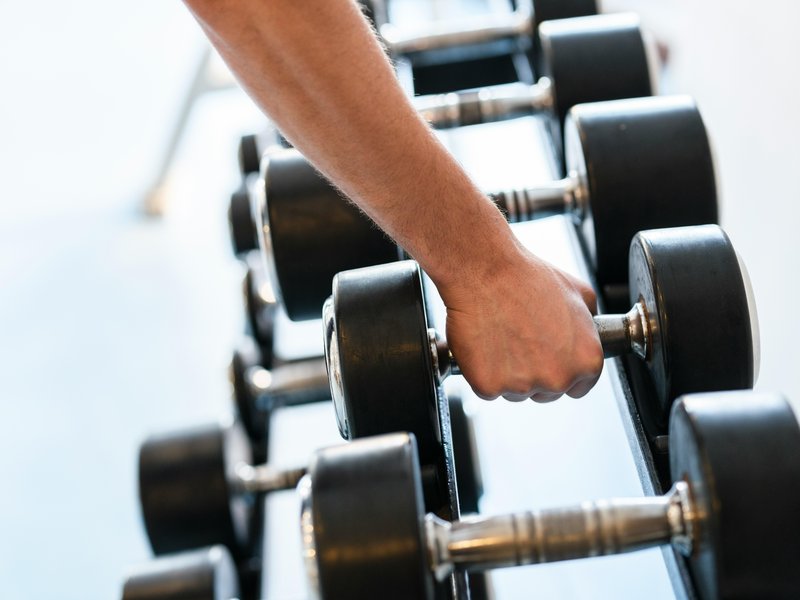The Hidden Truth About Alcohol and Male Hormones 🍻🧬
The idea that alcohol ruins testosterone levels is widespread—but is it really true? In this article, we dive deep into the alcohol testosterone myth to uncover what science actually says. While binge drinking can harm your hormones, the full picture is far more nuanced than most people believe.
Understanding how alcohol affects testosterone starts with recognizing how the body regulates hormone production. Testosterone is produced primarily in the testes, regulated by the hypothalamus and pituitary gland. When you drink heavily, these systems may become temporarily impaired, leading to a short-term drop in testosterone levels.
Short-Term Effects of Alcohol on Testosterone
Studies show that acute alcohol consumption—especially in large doses—can lead to a temporary suppression of testosterone. This is particularly true for binge drinking, which spikes cortisol (the stress hormone) and impairs testicular function.
However, occasional moderate drinking doesn’t seem to have the same damaging effect. In fact, some research indicates that low-to-moderate alcohol intake may have negligible or even slightly positive effects on testosterone due to the relaxation and social bonding it promotes.
Long-Term Alcohol Use and Hormonal Health
Chronic alcohol abuse is a different story. Over time, excessive drinking can lead to liver damage, which directly affects hormone metabolism. The liver helps to clear excess estrogen from the bloodstream. When it’s impaired, estrogen levels rise—leading to hormonal imbalance, including lowered testosterone levels.
This long-term hormonal damage is especially pronounced in men who drink heavily over the course of years. It can result in decreased libido, erectile dysfunction, low energy, and even infertility.
According to a study published in the journal Alcohol Research, testosterone levels in chronic alcoholics are significantly lower than in non-drinkers. The damage is often reversible if the person stops drinking early enough and adopts hormone-supportive habits.
How Much Alcohol Is “Too Much”?
There’s no one-size-fits-all answer. But the general medical consensus is that moderate alcohol consumption—defined as up to 2 drinks per day for men—is unlikely to cause significant hormonal disruption. Binge drinking, on the other hand, is a major red flag for your endocrine system.
What’s considered binge drinking? Consuming 5 or more drinks in a 2-hour period qualifies. Even doing this once per week can compound hormonal problems over time.
Different Types of Alcohol and Testosterone Impact
Not all alcoholic beverages affect your body the same way. Here’s how they compare:
- Beer: Contains phytoestrogens (plant-based estrogens) from hops, which may slightly suppress testosterone.
- Wine: Red wine contains resveratrol, which may offer some antioxidant benefits, but alcohol is still present.
- Spirits: Vodka, whiskey, and rum are low in phytoestrogens but deliver pure alcohol, which taxes the liver more directly.
If you drink, opting for distilled spirits in moderation may be slightly less disruptive to your hormones than beer-heavy nights.
Alcohol, Testosterone, and Stress Hormones
Alcohol and stress hormones often work in tandem to damage testosterone production. When you drink, cortisol levels increase. This is similar to how chronic stress lowers testosterone over time, as seen in our related article on stress hormones and sex drive.
When both alcohol and stress are present, the testosterone crash is even more noticeable—resulting in poor sexual performance and lack of motivation.
Sleep, Alcohol, and Hormones
Alcohol ruins REM sleep—the deepest and most restorative phase. Testosterone is produced primarily during REM cycles, especially in the early hours of the morning. A single night of poor sleep from alcohol can drop your testosterone levels by as much as 10–15% the next day.
Over time, this sleep disruption can lead to chronic hormonal imbalance and low energy.
Does Alcohol Affect Muscle Gains and Libido?
Yes, especially if you’re training hard and trying to maximize testosterone. Alcohol can disrupt sleep quality, reduce protein synthesis, and impair recovery. All of these factors play into testosterone production and muscle growth.
As for libido, alcohol is a double-edged sword. A little may lower inhibitions and increase desire, but too much leads to poor performance and even temporary erectile dysfunction. Again, it comes down to dosage and frequency.
In our breakdown of cardio vs strength testosterone, we show how consistent resistance training can naturally counteract hormonal dips—even in social drinkers.
Real-World Example: Social Drinker vs. Chronic Binger
Take two men. One enjoys a glass of wine with dinner 3x per week, sleeps 7–8 hours per night, trains hard, and eats clean. The other drinks 6–8 beers every Friday and Saturday, sleeps late, and eats fast food. Their testosterone levels will be miles apart—regardless of age.
This real-world contrast proves that alcohol’s damage depends more on context than presence. You can drink and still maintain optimal testosterone—if the rest of your habits are aligned.
Can You Reverse Alcohol-Induced Testosterone Loss?
Yes. Your body is resilient. With the right changes, you can rebound naturally. Here’s how:
- Eliminate binge drinking completely
- Prioritize 8+ hours of uninterrupted sleep
- Follow a diet rich in zinc, magnesium, and healthy fats
- Lift weights 3–4x per week
- Take cold showers and manage stress daily
The Verdict: Is the Alcohol Testosterone Myth Real?
The alcohol testosterone myth is partially true—but oversimplified. Occasional moderate drinking is unlikely to crash your testosterone. The real danger comes from chronic abuse, poor sleep, and combining alcohol with other testosterone killers like stress, poor diet, and inactivity.
Want to Maximize Your Testosterone Naturally?
If you’re serious about optimizing your hormonal health, cutting alcohol is just one piece of the puzzle. To unlock the full potential of your size, stamina, and confidence, access the complete enhancement guide now.
Alcohol, Testosterone, and Male Fertility
One of the most overlooked consequences of excessive drinking is its effect on sperm health. Research published in the journal Andrology indicates that heavy alcohol use decreases sperm count, motility, and morphology—three critical factors for male fertility.
Testosterone plays a vital role in spermatogenesis (sperm production). When testosterone levels drop due to alcohol or liver dysfunction, sperm quality declines rapidly. This has led to an increased focus on alcohol’s contribution to infertility among men under 40.
For those planning to become fathers, even moderate drinking during the conception window can affect outcomes. Reducing or eliminating alcohol for 3–6 months before trying to conceive is often recommended by fertility specialists.
Cultural Myths Around Alcohol and Masculinity
Alcohol has long been tied to cultural ideas of masculinity—“real men drink whiskey” or “beer builds brotherhood.” But the irony is that excessive drinking undermines core masculine traits like strength, sexual performance, confidence, and fertility.
This contradiction fuels the alcohol testosterone myth. Many men drink believing it makes them more masculine, when in fact it may be robbing them of the very hormones that define masculinity biologically.
Challenging these outdated beliefs is key. Modern masculinity is about optimization, not intoxication. You can enjoy life—and even the occasional drink—without compromising your edge.
Can You Boost Testosterone Without Cutting Alcohol Completely?
Absolutely. Here’s a balanced plan:
- Limit drinking to 1–2 occasions per week
- Hydrate aggressively before and after alcohol
- Use a liver support supplement (e.g., milk thistle)
- Follow a testosterone-friendly diet rich in whole foods
- Train hard and get quality sleep
- Avoid blue light exposure at night—check our guide on blue light and testosterone
It’s not about being perfect—it’s about being strategic.
Final Checklist: Alcohol and Testosterone Health
- ✔ Moderate alcohol occasionally? Low risk
- ✔ Binge drinking every weekend? High risk
- ✔ Pair alcohol with poor sleep and stress? Disaster
- ✔ Maintain training, diet, and sleep? You’ll recover
- ✔ Want to level up? Alcohol is only part of the equation
Ready to Upgrade Your Masculinity?
Optimizing testosterone isn’t just about giving things up—it’s about gaining back your power, confidence, and performance. Start your transformation today with the system designed to help you grow in every way.
Also explore our breakdown on hair loss and testosterone to understand how your DHT levels may be affecting your looks and your libido.
Frequently Asked Questions About Alcohol and Testosterone
Does quitting alcohol raise testosterone?
Yes. Many men report significant boosts in testosterone within weeks of quitting alcohol. Studies confirm that abstinence improves hormonal balance, libido, energy levels, and even sperm quality.
Can alcohol cause permanent testosterone damage?
In extreme cases of long-term alcohol abuse, testicular damage may be partially irreversible. However, most hormonal disruptions caused by alcohol can be reversed with lifestyle changes, nutrition, and time.
Is beer worse than liquor for testosterone?
Beer contains phytoestrogens from hops, which may have mild estrogenic effects. Liquor has a more direct liver load. Both can harm testosterone if consumed in excess, but moderation matters most.
Want to understand how hormonal shifts affect your appearance? Check our full guide on hair loss and testosterone.
Conclusion: Be the Man Who Knows the Truth
The alcohol testosterone myth isn’t black and white. Moderate alcohol might not ruin your hormones, but chronic use absolutely can. The difference comes down to discipline, education, and strategy.
At supremepenis.com, we believe real masculinity means taking control of your body—not numbing it. You deserve to feel powerful, perform like a beast, and show up at 100%—in and out of the bedroom.
Continue your journey by learning how your hairline connects to your hormones in our next deep dive: Hair Loss and Testosterone.
🍺 Alcohol Types vs Testosterone Impact
| Alcohol Type | Effect on Testosterone | Risk Level |
|---|---|---|
| Beer | Contains phytoestrogens, may increase estrogen | ⚠️ Medium |
| Wine | Neutral or mildly positive in moderation | 🟡 Low |
| Spirits | Stronger effect on liver, impacts estrogen clearance | 🔴 High |
| None | Optimal testosterone production | ✅ Best |
More Questions About Alcohol and Hormones
Why do I feel more confident after drinking, but worse the next day?
Alcohol temporarily boosts dopamine, giving you a short-lived surge of confidence. But it crashes testosterone and serotonin afterward, leading to anxiety, fatigue, and low sex drive.
Is moderate drinking safe if I’m on a testosterone-boosting protocol?
Yes, but timing matters. Avoid alcohol around heavy training or sleep hours. Choose cleaner spirits, stay hydrated, and never pair with poor sleep or high stress.









